Yesterday was Memorial Day — a day for us Americans to collectively thank the people who made the supreme sacrifice for America.
Back in the other Washington, lawmakers are trying to figure out how to pay for expanding health insurance for what could be as many as 50 million uninsured Americans. While they are not foolish enough to believe that we beer drinkers can shoulder that financial burden alone, they are considering a “beer tax” as part of the package. Below, you’ll find the Associated Press story about the proposed excise tax hike.
My two cents worth? How about we only apply the tax to non-American beer like Budweiser, Coors and Miller. For those who don’t know, Anheuser Busch is now owned by InBev–a Belgian-Brazilian company. In the U.S., Miller and Coors are pretty much the same thing. MillerCoors is a joint venture between two non-American beer companies: MolsonCoors (Coors is actually just a regional division of Molson) and SABMiller (South African Breweries acquired Miller in 2002).
On the other hand you have a company like Elysian Brewing, for example. It is owned by some nice American folks here in Seattle. When they make profit, it stays here. You know, in America.
That’s an extremely simplified description of the beer business landscape, I admit. You get my point. Don’t tax American beer!
By RICARDO ALONSO-ZALDIVAR, Associated Press Writer Ricardo Alonso-zaldivar, Associated Press Writer – Wed May 20, 6:52 pm ET
WASHINGTON – Joe Six-Pack may have to hand over nearly $2 more for a case of beer to help provide health insurance for all.
Details of the proposed beer tax are described in a Senate Finance Committee document distributed to lawmakers before a closed-door meeting Wednesday. Senators are focusing on how to pay for expanding health insurance for an estimated 50 million uninsured Americans, a cost that could range to some $1.5 trillion over 10 years.
You can’t raise that from beer money alone.
Lawmakers are looking at an extensive list of spending cuts and tax increases, including a new levy on the value of job-based health insurance. The latter proposal seems to be gaining ground. It could lead to higher income taxes for some people with particularly generous job-based health care.
Finance Committee Chairman Max Baucus, D-Mont., said no decisions were made, but he will use the feedback to shape legislation he intends to introduce in the next few weeks. The committee has a critical role to play in the health care overhaul, since it writes tax law and oversees the government’s giant medical insurance programs. Baucus wants to write a bipartisan bill, a goal for President Barack Obama.
“Nothing’s pushed off the table,” Baucus told reporters after the daylong meeting. He said senators have come closer on some issues, but much remains to be resolved.
While many of the revenue raisers involve obscure provisions of federal law, most consumers can relate to a beer tax.
Taxes on wine and hard liquor would also go up.
And there might be a new tax on soda and other sugary drinks blamed for contributing to obesity. A tax of 3 cents per 12-ounce drink would raise about $50 billion over 10 years, according to congressional estimates. Diet drinks, however, wouldn’t be taxed.
The idea behind the proposed increases is to tax lifestyle choices that contribute to rising medical costs. Obesity puts people at risk for diabetes and heart problems. Alcohol abuse is a risk factor in several types of cancer, liver disease and psychological problems.
The soft drink industry and beer and wine producers are already lobbying to stop the proposals before they gain traction. The tax increases would lead to job losses for workers and higher costs for recession weary consumers, say the industries. Wine makers are also pointing to studies that suggest a glass a day can be good for health.
“Singling out wine for higher taxes to reform health care is misguided because wine is part of a healthy diet and lifestyle for millions of Americans,” said Robert P. Koch, president of the Wine Institute, which represents California’s industry.
Under the proposal lawmakers are considering, beer taxes would be increased by 48 cents a six-pack, from the current 33 cents. Beer is still the favorite choice of Americans who drink alcohol.
Wine taxes would rise by 49 cents per bottle, from the current 21 cents.
And the tax on hard liquor would increase by 40 cents per fifth, from the current $2.14.
Percentage-wise, wine drinkers would take the biggest hit, a 233 percent tax increase per bottle. The Wine Institute said the tax increase would be even bigger for wines with a higher alcohol content.
Hard liquor would see the smallest proportional increase, 19 percent per fifth.
The beer tax would rise by 145 percent per six-pack.
Proponents of the idea say it would equalize the tax treatment of alcoholic drinks, by charging the same tax rate based on alcohol content to all. But that would put an end to the current tax advantage enjoyed by beer and wine.
The higher alcohol taxes would bring in nearly $60 billion over 10 years.










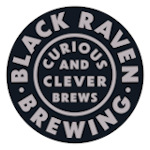

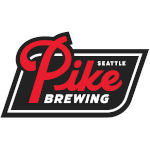


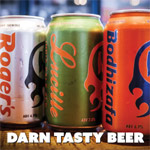



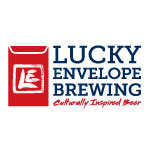
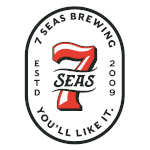












How about a Fast food tax, or junk food tax. Consuming these is a large contribution to the overweight people in American which in turn is drawing from the health insurance pool.
I’ve been interested in taxes for longer then I care to acknowledge, both on the individualized side (all my employed lifetime!!) and from a legal viewpoint since passing the bar and following tax law. I’ve put up a lot of advice and corrected a lot of wrongs, and I must say that what you’ve put up makes utter sense. Please carry on the good work – the more individuals know the better they’ll be outfitted to deal with the tax man, and that’s what it’s all about.